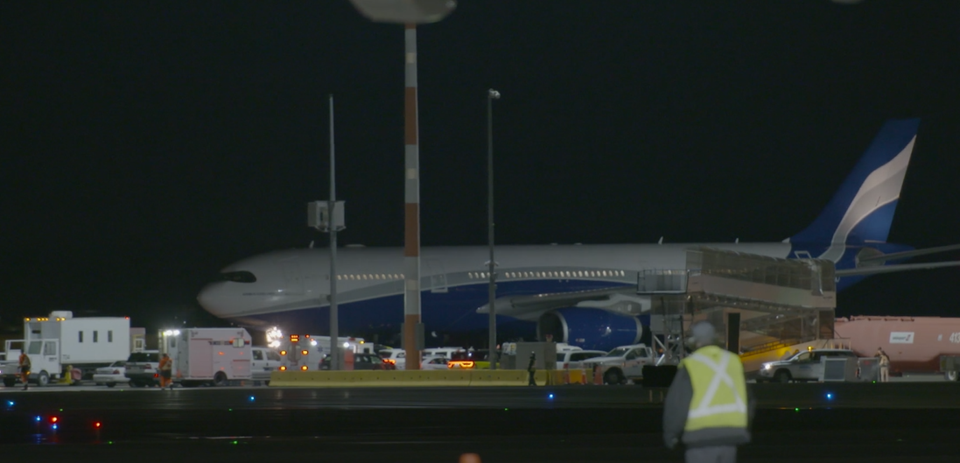The federal government is asking travellers coming from Hubei province to voluntarily isolate themselves for 14 days.
“If you have travelled to Hubei province in the last 14 days, limit your contact with others for a total of 14 days from the date you left Hubei,” reads the government’s webpage on the virus.
“This means self-isolate and stay at home (sic).”
The request marks an escalation from the country’s top health officials, who until recently have asked returning travellers to monitor their health and seek medical attention if they have any symptoms of novel coronavirus.
Symptoms of the virus include a fever, cough and difficulty breathing.
As the research and data on the virus continues to grow and evolve, the government says it will continue to adapt its advice for travellers.
Some evidence, according to Dr. Theresa Tam, the country’s chief public health officer, suggests the coronavirus may spread to others even when symptoms are in early stages or the illness is mild.
1/3 Some evidence suggests #2019nCoV may spread to others even when symptoms are very early or the illness is mild. Maintaining #handwashing and #coughetiquette is key to prevent spread of #2019nCoV. #coronavirus #OutsmartEpidemics pic.twitter.com/zeFZMX1Hq9
— Dr. Theresa Tam (@CPHO_Canada) February 7, 2020
The federal government isn’t the only agency requesting travellers to self-isolate. Earlier this week, B.C.’s top health officials asked anyone in the province who has recently travelled to Hubei to consider staying home, and keeping their children home, for two weeks.
That request also extends to anyone who has been in close contact with someone who has recently come to Canada from Hubei, according to a joint statement Friday from B.C.’s health minister, Adrian Dix, and provincial health officer Dr. Bonnie Henry.
However, both B.C. and federal health officials state the risk to Canadians and to British Columbians remains low.
“We are watching the evolution of the outbreak in China very closely and will notify the public if the measures we need to take in B.C. change,” reads Friday’s statement from Dix and Henry.
Wuhan, Hubei’s capital city of about 11 million people and the epicentre of the outbreak, has been on an unprecedented lockdown since Jan. 23. The lockdown was eventually extended to all cities in Hubei province, affecting nearly 60 million people.
As of Feb. 8, the National Microbiology Laboratory in Winnipeg has confirmed seven positive cases of novel coronavirus in Canada, and 191 negative cases, according to the federal government. While provincial health authorities can test for novel coronavirus, these cases are only considered presumptive positive until they are confirmed by the national lab.
Four of the seven confirmed patients are in B.C. in the Vancouver Coastal Health (VCH) region, and three are in Ontario.
B.C.’s second confirmed case, a woman in her 50s who lives in the VCH region, contracted the virus from family members who were visiting from Wuhan.
On Thursday, Henry confirmed her family members, a man and a woman, had tested positive for the coronavirus. All are at home in self-isolation.
B.C. has tested a total of 210 people for the virus, as of Feb. 5.



